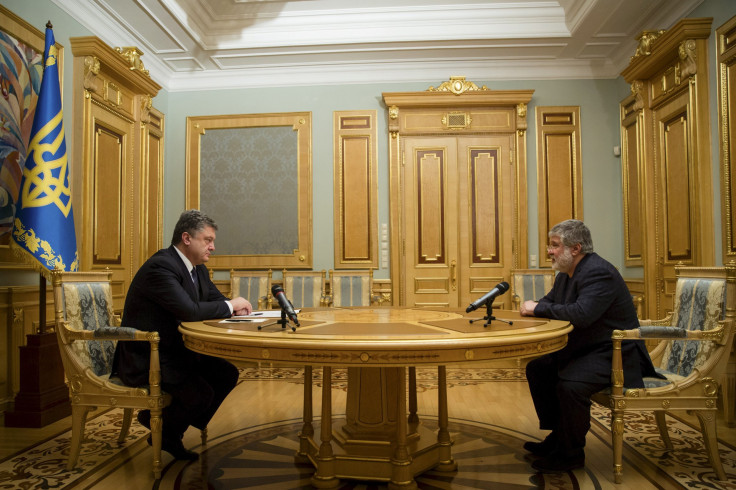Ukrainian Oligarch Igor Kolomoisky Resigns After Tense Standoff With Poroshenko Over UkrNafta

An influential Ukrainian oligarch whose private army had seized control of state-run oil firms has resigned after a tense standoff with security forces in Kiev. Igor Kolomoisky, the former governor of the Dnipropetrovsk region, submitted his resignation after meeting with President Petro Poroshenko on Tuesday, according to media reports.
Kolomoisky, once a key ally of Poroshenko’s government, clashed with Kiev over the control of two state-owned energy companies, UkrNafta and its subsidiary UkrTransNafta, after parliament moved to retake control of the companies from him.
In response, men suspected to be from Kolomoisky’s Dnipro-1 battalion stormed the offices of UkrTransNafta, after which Kolomoisky emerged from the building and said his men had stopped an attack by “Russian saboteurs.” The government reportedly refuted his claims of attempted sabotage.
A few days later, more gunmen linked to Kolomoisky took the offices of UkrNafta, blockading themselves inside the building before abandoning it on Tuesday after the government issued an ultimatum.
Valentin Nalivaichenko, head of Ukraine’s security services, also accused Dnipropetrovsk regional officials of being involved with criminals who allegedly fought with law enforcement officers, abducted individuals, and intimidated anti-corruption investigators.
Late Tuesday night, Poroshenko announced Kolomoisky’s dismissal, and named Valentin Reznichenko as acting governor in his stead, Radio Liberty reported. Reznichenko is also governor of the Zaporizhia region. “We have to ensure peace, stability and tranquility. Dnipropetrovsk region should remain a bastion of Ukraine in the east, to protect peace,” Poroshenko said in a statement, according to the New York Times.
The incident has drawn further attention to Ukraine’s continuing use of private militias, who are allied to Kiev but are not answerable to it. It is estimated that 30 such groups operate in Ukraine, and they have been linked to serious human rights abuses, including summary executions, torture and abductions. Their independence has long been a point of concern.
Private military troops who had been keeping the peace in the southeastern city of Odessa have seemingly disappeared from the streets, according to the Times. The regional governor there is reportedly an ally of Kolomoisky, who was once called the country’s “secret weapon” for his role in financing anti-separatist militias.
As the crisis unfolded, Poroshenko warned on Monday that no governors would be allowed to keep a “pocket army,” possibly signaling a crackdown on their continued use.
Kolomoisky is also involved heavily in Ukrainian business, with interests in finance, aviation, energy and metals. Two days after the UkrTransNafta raid, he called for nationalization of industrial assets, arguing that the assets had been “illegally privatized” at criminally low prices. He added that the country should hold off on accepting bailout money from the International Monetary Fund (IMF) “until we cleanse ourselves of the past.”
Kolomoisky, whose net worth is $1.36 billion according to Forbes, reportedly manages his interests through offshore companies, and is in a legal battle with another Ukrainian oligarch for ownership of an iron ore mine.
Ukraine’s current deficit stands at a whopping $40 billion, and the IMF has promised $17.5 billion in loans over the next four years. The country’s economy shrank at an annualized rate of 14.8 percent in the fourth quarter of FY2014, according to the Financial Times.
© Copyright IBTimes 2024. All rights reserved.




















